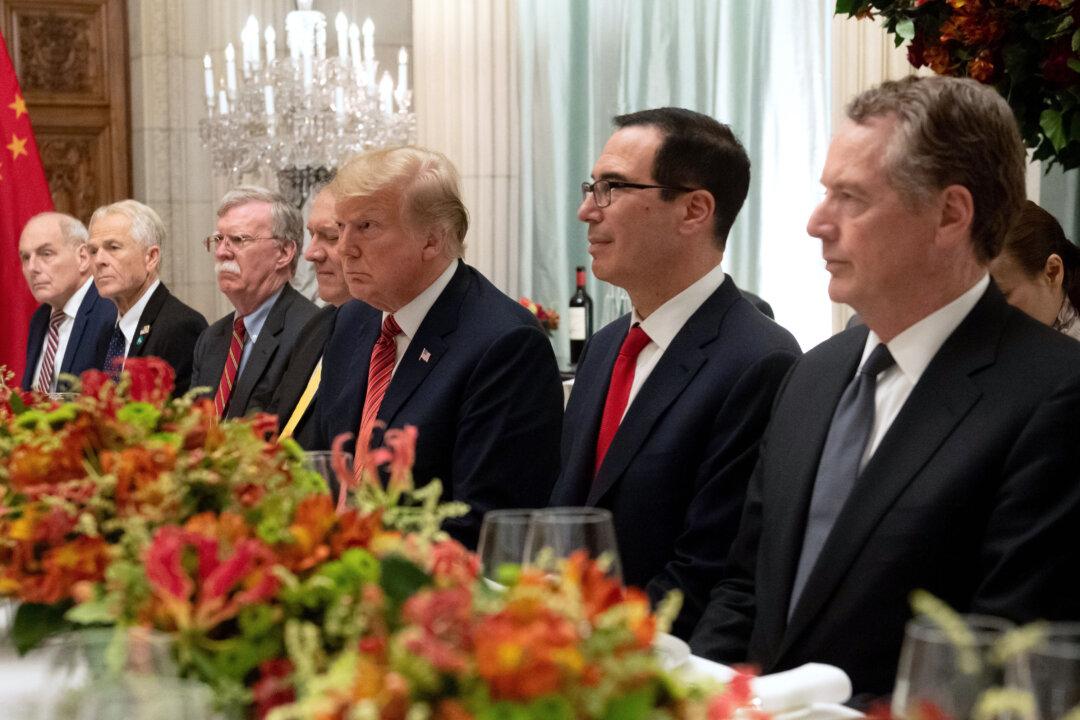This was the year that the United States rewrote its relationship with China.
It began with President Donald Trump’s decision to tackle the Chinese regime’s practice of intellectual property (IP) theft.
Trump used tariffs to punish China for its longtime trade offenses and shine a spotlight on Beijing’s “Made in China 2025” economic blueprint—the ambitious game plan for China to dominate several cutting-edge technology industries and become an advanced manufacturing powerhouse by the year 2025.
But working to force China to change its trade practices was just the beginning.
As Vice President Mike Pence outlined in a definitive speech at the Hudson Institute in October, Beijing deploys a “whole-of-government approach, using political, economic, and military tools, as well as propaganda, to advance its influence and benefit its interests in the United States.”
The message was clear: The United States would no longer simply stand by as China undermined U.S. interests, on U.S. soil and abroad. Pence hinted at the all-encompassing scope of a more hardline U.S.–China policy in the years ahead. Past administrations have ignored China’s misbehavior, “but those days are over,” Pence said.
In 2018, the Trump administration and U.S. Congress—in a show of bipartisanship—tackled China’s aggressive IP theft; espionage and influence campaigns; manufacture of the highly toxic opioid fentanyl, responsible for tens of thousands of deaths in the United States annually; and expansion of geopolitical interests around the world. It was an unprecedented attempt to force China to play fair.
So far, the Chinese regime has done little to convince the world that it intends to play by the rules—despite platitudes promising to open its markets and liberalize its economy.
For now, the ongoing trade row has taken a toll on an already slowing Chinese economy, putting pressure on Chinese leader Xi Jinping and his leadership to make the right compromises.
A 90-day truce has commenced, with China making some concessions, such as cutting tariffs on U.S. car imports. It remains to be seen whether the Chinese regime will make fundamental changes to its economic policies that support and prop up domestic sectors to the detriment of the United States and other Western competitors.
Intellectual Property
This year, the Trump administration decided the United States must launch a tactical offensive to counter China’s state-sponsored IP theft.
The Department of Justice (DOJ) has ensnared alleged wrongdoers in case after case of economic espionage. Most recently, on Dec. 20, two Chinese nationals—allegedly hackers working for China’s chief intelligence agency, the Ministry of State Security (MSS)—were charged with stealing IP and business data from companies around the world. The targets belonged to a large range of industries, all in fields that Beijing wants to develop aggressively.
In November, the DOJ announced a bombshell case as part of a new initiative to go after Chinese espionage. Prosecutors alleged that Chinese semiconductor firm Fujian Jinhua had stolen technology from U.S. chipmaker Micron on how to manufacture advanced chips.
At the same time, the Department of Commerce banned U.S. suppliers from exporting tech components to Fujian Jinhua, effectively crippling its operations—as Chinese technology firms rely heavily on foreign imports due to China’s domestic sectors lagging in chip innovation.





